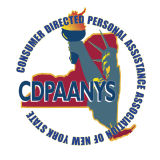Nutrition, while important for every stage of life, can pose certain hurdles as we age. Physical changes in the body and possible health issues make obtaining the recommended daily nutrients a bit more complicated. Add to this a diagnosis of dementia and you may be required to come up with some creative approaches during mealtimes.
Every stage of dementia presents its own set of challenges. Familiarizing yourself with what is common during each stage and getting to know your loved one’s personal preferences can go a long way in supporting their health in the best way possible.In the early stages of dementia, gauging your loved one’s ability to prepare foods safely at home is paramount. This is a good time to plan and prepare foods together that can later be heated in the microwave; facilitating meals and encouraging healthy food choices. Leaving a note with simple clear instructions and stocking healthy snack options can also help promote independence and optimal nutrition throughout the early stages of the condition.
As language and cognition deteriorate, the person may get confused at meal times or try to conceal their deficits. This may lead to food refusal, anxiety and agitation. Setting them up for success is key during these later stages of dementia. Here are a few creative ways you can help your loved one acquire much-needed nutrients each day.
Tips for Successful Mealtimes:
- Provide foods that are easy to eat. As utensils become more difficult to navigate, offer finger foods. If your loved one tends to wander or has difficulty concentrating at the table, place healthy snacks in key locations throughout the home.
- Keep plates simple, avoid placing too many items on one plate. Provide contrast between the plate and the table to lessen disorientation. Using visual cues to help them select foods and offering only one or two choices can help avoid confusion. A simple white plate on a bright colored placemat can make a big difference.
- Offering a small sweet snack such as pudding first may open the appetite and willingness to eat. Tastes may change, even if your loved one did not like something previously trying it again may be worth a shot. Providing high-calorie foods or adding healthy ingredients such as protein powder to preferred foods can easily increase the nutritional value of each meal.
- If your loved one tends to forget that they have eaten and requests a second meal. In order to avoid overeating and weight gain offer only a small portion of the meal at a time. For example, give half of a bagel and banana, so when they ask again you can give the remaining half. Then help redirect them to other activities until the next meal time.
- If foods have to be pureed, avoid combining ingredients. Puree the foods separately and present them attractively on the plate. At later stages difficulty swallowing may present a problem; adding thickeners, offering ice cream, pudding, or protein shakes can continue to make mealtimes enjoyable and offer a chance to socialize and bond.
During the later stages of the condition, it may be important to reassess your loved ones nutritional needs versus quality of life. Despite changes and challenges, it is important to approach mealtimes as an opportunity to socialize and connect with your loved one. Keeping a positive approach will encourage your loved one to do the same. As with any care plan, it is important to discuss your loved ones specific, individual needs and desires with your physician before making changes.
References:
Jansen, S., Ball, L., Desbrow, B., Morgan, K., Moyle, W., & Hughes, R. (2015). Nutrition and dementia care: Informing dietetic practice. Nutrition & Dietetics, 72(1), 36–46.









